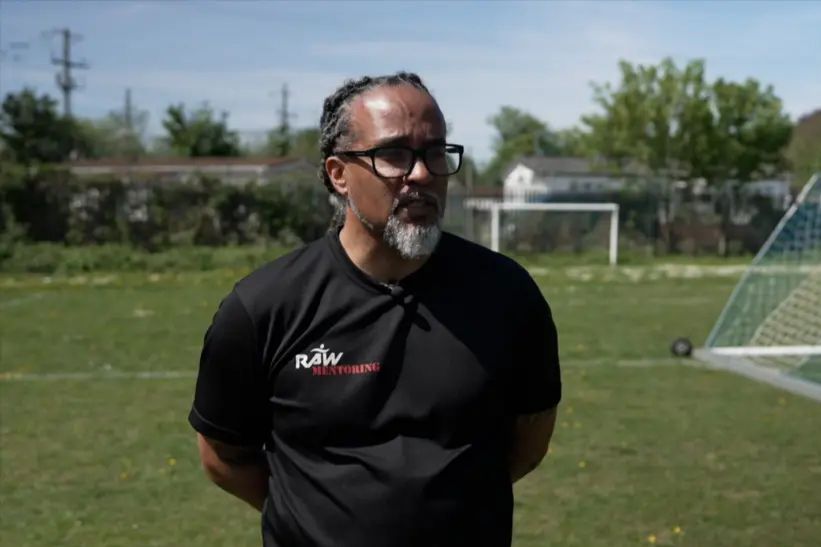https://www.bbc.co.uk/sport/articles/c5y6v907260o
Read below to see how the BBC and UK Coaching paid a visit to Raw Mentoring to discuss :
HOW SPORT COACHES ARE HELPING TACKLE TOXIC MASCULINITY
Katie Gornall
BBC Sport
Published
16 May 2025
Jordan Puente was 13 when he was first expelled from school. At 14 his anger and aggressive behaviour was so challenging, his mum feared he would end up in prison.
Then one day a sports coach and mentor called Roddy Slater began working with him through his school in Reading and set Jordan on a path that would transform his life.
"He started taking me down to the gym and he helped me use weightlifting as a tool to get away from that troubled life as a teenager, from being on the streets and getting in trouble with the law," he told BBC Sport.
"I'd come in there with all these problems. He'd listen to me. In my head I'm just training, but then I'd come out of that session with a weight off my shoulders, being like 'hang on a minute I know how to handle it now'. Suddenly you've just been mentored for an hour without even realising it."
A decade on from that first session in the gym Puente's life has come full circle, with the 25-year-old now working for Slater mentoring and coaching vulnerable young people at a time when the importance of positive role models is in the spotlight.
The release of the popular Netflix series Adolescence and former England manager Gareth Southgate's Richard Dimbleby lecture have sparked a nationwide discussion about the issue of toxic masculinity and online influencers shaping young boys' minds.
Sports coaches can play a "critical role" in addressing the issue, according to UK Coaching, which in a survey last year found that they were the most trusted profession among 18 to 24-year-olds, above teachers, nurses and social workers.
The Adolescence drama shone a light on the corrosive impact of social media and the dangerous stereotypes about masculinity some teenage boys see online.
In today's digital age, providing an interaction with "real life" influencers is more important than ever, according to Slater.
"I think we're giving them that space to actually see a role model face to face," the 52-year-old said. "They can talk about what they want to talk about, and they'll be listened to. A good coach listens first.
"I think so many of our young people today lack the ability to build those relationships. Their social interactions are limited. Everything is online, either on their phone or on the end of their PlayStation 5 or whatever."
Mark Gannon, chief executive of UK Coaching, said the face-to-face role of sports coaches was particularly important in "trying to get young people to understand the reality versus what they might see on social media, particularly with [online] misogyny".
Every day around 30 young people facing significant challenges in their lives come to the Raw Mentoring site in Reading, which Slater runs. They are given one-to-one coaching in different sports and activities, while at the same time being mentored.
Zeph, who is in year eight at school, has been supported here for three years, telling BBC Sport: "It makes me happy. When I come here, I don't want to leave. I used to get into fights nearly every day, I'm much calmer now."
It is something Puente can relate to, describing his weekly run-ins with the police and being "a silly teenager" who got into a lot of fights before turning his life around.
"When you're young, your brain's like a sponge," said Puente, who now helps youngsters alongside his job running a personal training business.
"You just reflect everything that you see. And I think if you don't have that strong role model growing up, you're kind of just going through those transitional periods as a teenager a little bit lost and unguided.
"I think it's underestimated how beneficial a structured role model and supportive person can be."
He says that even now Slater is "probably one of, if not the most, influential person" in his life.

